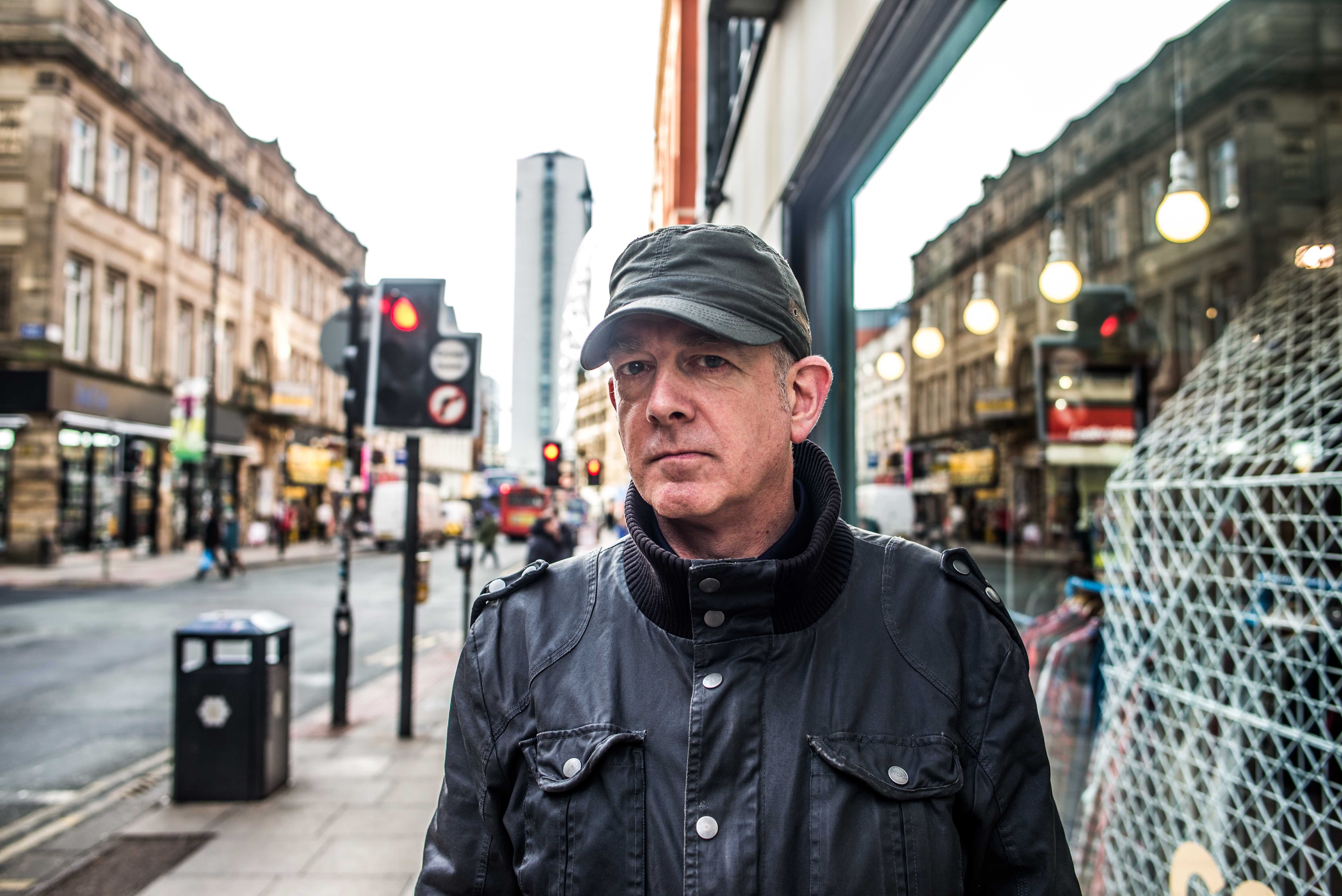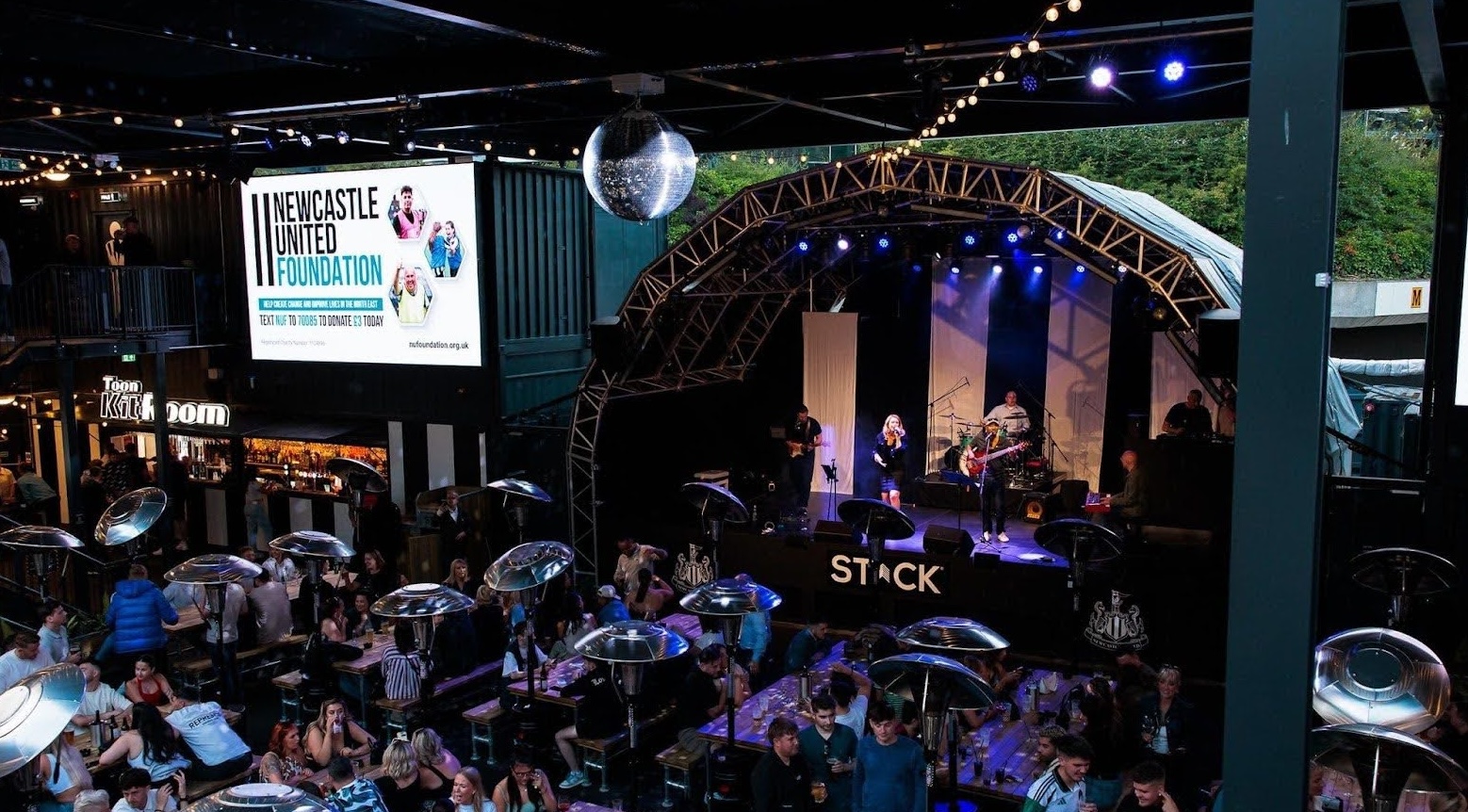
GIGPIG INTERVIEWS: DAVE HASLAM
Over the last four decades, there isn’t much that Dave Haslam hasn’t experienced when it comes to DJ’ing. A resident at the Hacienda, the Birmingham born spinner has delivered countless BPMs across the world, from Spike Island to Paris, from M&S Simply Food in Kensington to Eamonn Holmes’ 50th birthday. In between putting Sonic Youth up for the night, becoming an award winning author and watching the industry evolve and revolve for almost 40 hedonistic years.
With high street nightlife taking a major hit over the last few years and clubs around the country struggling to even tread water between the persistent hangover from Covid and, well, y’know, every f**king thing else that’s going on in the country, it felt like an apt time to discuss the state of things with someone who has experienced the full gamut of the industry’s chaos and unpredictability.
So, naturally, with a CV as extravagant as his, we had to talk to Dave about his career, the weirdest and wildest moments, how he broke into DJ’ing and what he believes the future holds for club nights amid this terribly uncertain future for thousands of independent venues.
One of the most respected writers and talking heads within British music as well as one of it’s most beloved and respected DJs, Dave is a historian who is nearly 40 years into seeing trends come and go and some constants remain throughout.
So, before we get to what was undoubtedly a ‘final days of Rome’ level bacchanal of a 50th birthday party for Eamonn Holmes, let’s start at the beginning, shall we?
GIGPIG: As somebody who has been DJ'ing for over 30 years now, what for you has been the biggest change or evolution within clubs in that time?
Dave Haslam: It’s nearly 40 years now, incredibly! The biggest change is just how high profile and high status club DJing is now. In the mid-1980s there were a few people with a 'name' on the soul and reggae scenes but mostly no-one was that bothered about club DJs. There were more barbers than DJs in Manchester in 1985. Now you can't move for DJs.
GP: When you were first beginning as a DJ, how easy/difficult was it to get booked? What were the biggest hurdles you faced and do you believe those hurdles still exist today for aspiring DJs?
DH: For the first two years I was organising gigs and parties and various nights and getting support from friends, and friends of friends, and people started coming to hear me play. Then I began to be approached by the management of various clubs. A couple of people from the Hacienda came to hear me play in the February of 1986 when I was resident at a place called the Venue, just a hundred yards from the Hacienda, and as a result they asked me to become a resident DJ there instead.
Thing is, getting that big break was the result of lots of hard work, learning how to programme a night, finding an individual style, and hours and hours of listening to music. Those four things all still matter now.
GP: Where are your favourite clubs and cities to play, both in the UK and around the world?
DH: I played the Golden Lion in Todmorden last year and loved it and I'm back there in September. There's a venue in Paris called Silencio, and playing Panorama Bar in Berlin was a great experience. But one thing I love about DJing is you can't predict whether a night will really take off. I try to agree to play venues where that's likely but sometimes the most apparently unlikely night turns out to be amazing. One of my career highlights - up there with playing in Turin at a party for New Order, at Spike Island with the Stone Roses, and a Paul Smith party in Bizet's old house in Paris - is a Sunday session in a whisky bar in Clevelend, Ohio.
GP: Independent venues and clubs have been closing at an alarming rate over the last few years, especially coming off the back of the pandemic. Many more are still in perilous financial positions. What do you believe needs to be done to help them out?
DH: It’s worth saying though that the number and quality of venues in Manchester now is as high as I can ever remember. The mid-1980s Manchester wasn't much better than a ghost town, certainly when it came to places featuring good bands or DJs playing interesting music. Now there are destination venues in Ancoats, Salford, Levenshulme. I'm not being complacent, it's just that the nightlife scene is very resourceful, plus, I guess, Manchester is still a world beater when it comes to underground club culture. Nationwide, high street nightlife is collapsing though, yes. Especially in smaller towns.
GP: Where’s the weirdest place you've played a gig?
DH: I played the Woolpack; the pub on the TV show Emmerdale. Also I DJ’d at M&S Simply Food in Kensington to celebrate their re-opening; the shoppers hated my selections. Oh, and Eamonn Holmes's 50th birthday party - I talk about that night in my memoir 'Sonic Youth Slept on My Floor'. It was memorable rather than enjoyable. I didn't play Jeremy Kyle's terrible request anyway. Proud moment.
GP: What’s the weirdest thing that has happened to you/you've seen happen at a gig?
DH: Someone asked me to stop the music because they wanted to propose to their girlfriend on the dancefloor and I did, and they did, and she said "yes" and they are still together twenty years later!
GP: Which DJs coming through at the moment are you most excited about?
DH: I’m a big fan of Werkha. Also Jossy Mitsu. And Ariel Zertina in Chicago, and a young DJ in India called Nida Merchant who's yet to play Europe.
GP: Finally, what do you think the future holds for DJs and the clubbing industry itself?
DH: The industry will always face challenges - that comes with running all businesses in whatever sector; you can never take your eye off the ball, and even then you might be unlucky and hit by circumstances you can't control. But going out dancing will never fade away, it's almost intrinsic to our human state. In the half-dark, head battered with excitement and intoxication, among friends, letting loose. My most recent book is about this, but over a hundred years ago - 'Adventure Everywhere: Pablo Picasso's Paris Nightlife'. Picasso was in Paris from 1900 onwards, a time of cabarets, late night bars, nightclubs; mixing with dancers, poets, models and bandits.
I do urge to DJs to be a bit braver though. OK, our role is to entertain but also it's to move the culture on. Take a risk. Be radical!
Dave’s latest book, the outstanding 'Adventure Everywhere: Pablo Picasso's Paris Nightlife' is available online and in-store from all good bookshops. And some dodgy ones as well, probably.
You can also follow Dave and his excellent selection of pictures and videos from the archives on TWITTER and FACEBOOK.
Related news


.jpg)
.jpg)

.svg)

